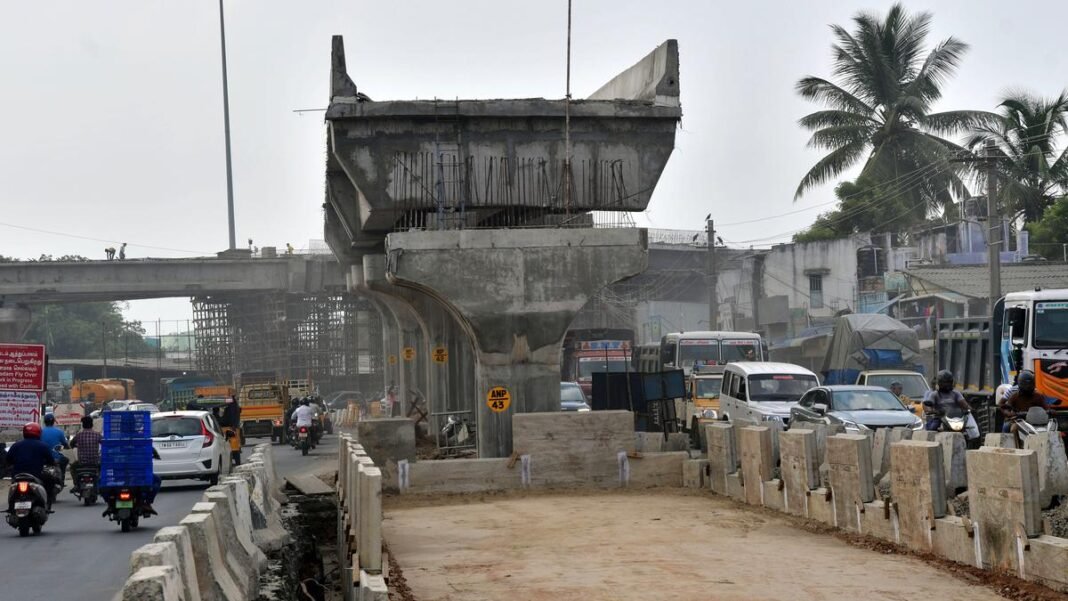News
Infra Alarm: Urgent Reforms Needed to Unlock India’s Growth Story

New Delhi, April 2, 2025: India’s infrastructure sector is facing a significant challenge, says a report titled ‘India’s INR 5 Lakh Crore Infrastructure Burden: Urgent Reforms Needed in Concession Agreements to Unlock Growth’ by Primus Partners. The report highlights the critical impact of outdated Public-Private Partnership (PPP) concession agreements on infrastructure project delays and cost overruns. It emphasizes the need for policy reforms to ensure timely and efficient project execution.
More than 40 per cent of major projects across the country are delayed, resulting in a staggering INR 5 lakh crore cost overrun, says the report by the New Delhi-based management consulting firm. A major contributor to these setbacks is outdated Public-Private Partnership (PPP) concession agreements which often fail to keep pace with today’s complex regulatory environment and evolving project needs.
Data from the Ministry of Statistics and Programme Implementation (MoSPI) indicates that as of April 2024, some 800 out of more than 1,800 ongoing Union government projects valued at over INR 150 crore each are behind schedule. These figures point to a pressing need to revisit and reform concession agreements, which currently fall short in handling regulatory challenges, cost escalation, and fair risk allocation.
Why Reform is Essential
Experts and stakeholders across the industry concur that concession agreements—the foundation of public-private collaboration in large-scale infrastructure—need to evolve. To address the challenges, key areas for reform include:
- Clearer Regulatory Guidelines: Agreements should explicitly define who is responsible for securing regulatory approvals and environmental clearances. There must be clear timelines and fair compensation for delays caused by regulatory hurdles.
- Flexible Financial Models: Revenue-sharing frameworks must be adaptable to reflect changing market conditions while safeguarding the financial sustainability of projects.
- Balanced Risk Sharing: Both public and private parties should have a fair and transparent mechanism to share risks arising from unforeseen circumstances.
- Room for Flexibility: Modern infrastructure projects require greater adaptability to changing technological, environmental, and market conditions, necessitating more dynamic agreement structures.
Learning from Experience
Real-world examples show how rigid and outdated agreements can derail projects—while more flexible frameworks can help steer them back on track.
- Addressing Regulatory Risks in Concession Agreements: The Rural Electrification Project case highlights the risks of inadequate regulatory clearances in concession agreements. It underscores the need to move beyond standard provisions and incorporate clear mechanisms for regulatory uncertainties, especially in developing economies. Strengthening agreements with balanced risk allocation and flexibility can enhance project resilience, protecting both authorities and concessionaires while ensuring successful infrastructure development.
- The Impact of Project Structuring and Viability: Another case involves an The Urban Finance Infrastructure Development Corporation project faced setbacks due to rigid contract terms and external interference, emphasizing the need for stakeholder engagement and flexibility. Early collaboration during the Request for Proposal (RFP) phase could have mitigated risks, avoiding delays and cost escalations. Proactive workshops and feedback sessions would have ensured practical, market-aligned terms. The case also highlights the necessity of seamless coordination in bundling strategies and adapting tariff and structural terms to market realities for attracting concessionaires and ensuring project success.
The Path Ahead
Overcoming India’s infrastructure challenges requires a joint effort between the government, private sector players, and financial institutions. Open communication and a willingness to update outdated concession agreements are vital for ensuring that large-scale projects are completed efficiently and on time.
“If India is serious about achieving its ambitious infrastructure goals, we need to rethink how these agreements are structured. By adopting a consultative approach, flexible concession frameworks, we can reduce delays, manage costs effectively, and create a stable environment for all stakeholders,” said a senior industry expert.
As India pushes forward with its ambitious infrastructure plans, embracing these reforms is essential—not only to prevent future delays and cost overruns but also to lay the foundation for sustainable, long-term economic growth.
-

 News3 weeks ago
News3 weeks agoMumbai’s Largest Trimandir Opens in Thane with Grand Three-Day Pran-Pratistha Ceremony
-

 News3 weeks ago
News3 weeks agoBudget 2026: Real Estate Sector Awaits Real Reform, Targeted Relaxations For Boost
-

 News3 weeks ago
News3 weeks agoUnion Budget 2026: Infrastructure-Led Growth Sets Stage for Real Estate Expansion Beyond Metros
-

 News4 weeks ago
News4 weeks agoHousing.com Expands Footprint to 15 Tier II Cities, Strengthening Presence in Emerging Residential Markets
-

 News3 weeks ago
News3 weeks agoNCDRC Directs District Magistrate to Take Over Control of Much Delayed Greater Noida Project
-

 News4 weeks ago
News4 weeks agoLuxury Housing in 2026: Experience, Exclusivity & Design-Led Living
-

 News2 weeks ago
News2 weeks agoJewar Airport ‘Ready’, Likely to Be Inaugurated by PM Modi By Late Next Month
-

 News3 weeks ago
News3 weeks agoBudget 2026 Positions Tourism & Hospitality as Economic Multiplier, Not Support Sector
































